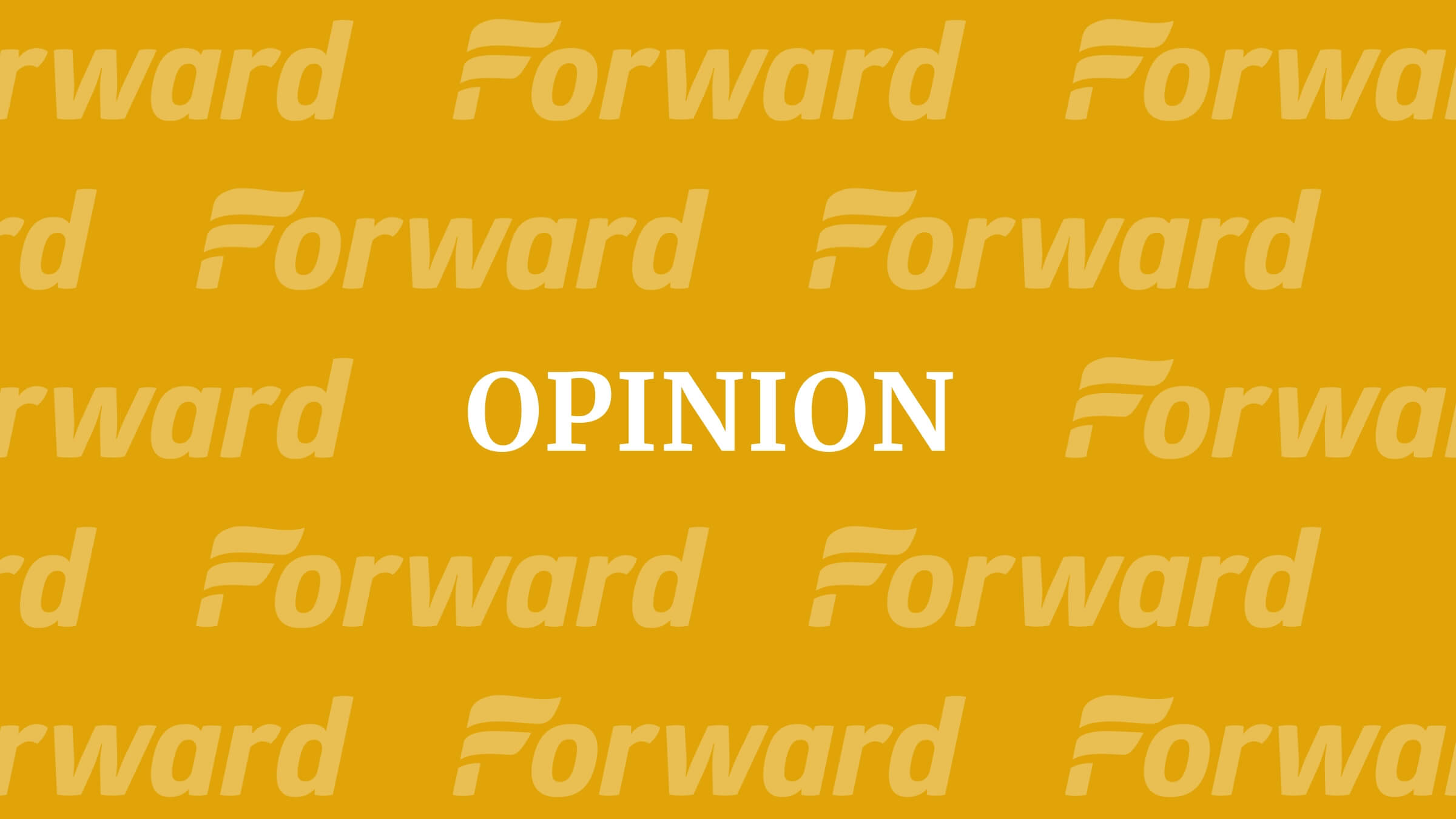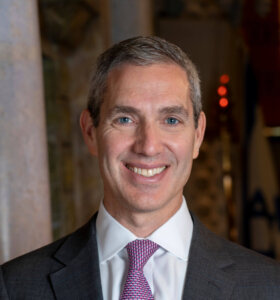We’re seeing a great awakening of American Jews. Can it last beyond fear and anger?
Our faith and community has been taken for granted for too long

Graphic by Angelie Zaslavsky
I addressed an “Allies Against Antisemitism” meeting for a multinational financial services company last week, with more than 250 participants via Zoom from across the country. The other day, I addressed a standing-room crowd of hundreds of concerned Jewish parents at a private, secular school in Manhattan. The otherwise sleepy WhatsApp group for my wife’s fellow alumnae of the historically Jewish sorority Sigma Delta Tau has roared to life.
The horrific Hamas terror attack of Oct. 7 and its aftermath have unleashed a great awakening among American Jews. Where did all these Jews come from and why are they engaging now?
Jews have been gathering with unusual intensity and frequency because we are traumatized, and want to feel connected to others who empathize. In some ways, the Jewish people have transformed into a global shiva house of support and presence.
Our coming together also shows each other and the world that we are not paralyzed. In our donations and advocacy, in our numbers, we show strength.
We want the institutions entrusted to educate our children and grandchildren to reflect our values, and if they don’t, we want to make our objections known.
The awakening is rooted in the antisemitism we are feeling, antisemitism that seems both more widespread and more virulent than we had realized.
Uniformly bad, antisemitism is not uniform in expression. In these past few weeks, we see three main strains.
The first was in the attack itself: The antisemitic murder of more than 1,400 Jews — religious ones and non-religious ones, Zionist ones and non-Zionist ones, Jews for judicial overhaul and those against it. Jews who were murdered because they were Jews.
The second is made up of physical and verbal thuggery — the graffiti-scrawling, slur-making, social media-posting, punch-throwing sort of hatred that makes no distinction between Jews and Zionists. The International Holocaust Remembrance Alliance definition of antisemitism sums this form up succinctly: “Rhetorical and physical manifestations of antisemitism directed toward” Jews and “Jewish community institutions and religious facilities.”
We have seen a surge in this form of antisemitism, especially on college campuses, since Oct. 7 — an anti-Israel sentiment aimed at intimidating all Jews with the threat of verbal and physical confrontation.
The third kind of antisemitism is what Rabbi Solomon Schechter, the president of the Jewish Theological Seminary, in 1903 named “higher antisemitism.” It is less violent but more nefarious, and seeks to deny Jews the right to self-defense and self-determination.
One manifestation of this is the impulse, expressed by many academics and also United Nations Secretary General António Guterres, to situate the atrocities of Oct. 7 in the context of an ongoing conflict rather than just calling them out for the evil they were.
The too-little, too-late statements from many American institutions in the face of the attacks and the kumbaya calls for a cease-fire that ignore the Jewish lives in captivity are examples of this kind of antisemitism. So, too, the chant, “From river to the sea, Palestine will be free,” without a whiff of self-awareness that such a vision necessitates the eradication of the only Jewish homeland. Often cloaked in the self-righteous language of progressive politics, this antisemitism denies Jews the rights due any other subset of humanity.
It is the stinging recognition of this third kind of antisemitism that has shaken American Jewry to its core and awoken it from its slumber. Jews are feeling the moral whiplash of watching Jews be murdered and then being blamed for those murders.
Amid all the justifications, moral equivalencies, “yeah buts,” and whataboutisms of these past few weeks, an unnerving realization has set in for many American Jews: We are not as secure on these shores as we thought we were.
These are not attacks by a lunatic white nationalist, nor the bullying of a Hasidic Jew on the back streets of Brooklyn, nor the disturbed rantings of a washed-out rapper. This antisemitism is happening in our own front yards, in the academic institutions of which we are proud alumni or parents, among our friends on Facebook, in the nonprofit groups where we sit on the board or make donations.
Everywhere the message is the same: Jewish lives don’t matter. American Jews who have grown up thinking that their Jewish identity was not such a differentiator, that they are privileged and powerful, are now scrambling to square the circle of what it means to be viewed and treated differently.
The curtain has been pulled back, and the post-Oct. 7 reality is an ugly one. We are realizing that the place of the Jew in the modern world is yet again at risk.
And in our unease, we turn to each other for succor and strength. We have been, in the words of the late Eugene Borowitz, “Marranos in reverse.”
Unlike the Marranos of old, who converted to Catholicism but secretly remained faithful to Judaism, American Jews have for decades been comfortable in their Jewish exterior but removed from the actual practice of religion or deep engagement with their culture.
Not anymore. The horrific events of Oct. 7 and the world’s subsequent reaction have upended all our assumptions as American Jews.
We must harness our newfound internal solidarity toward meeting the urgent needs of the hour.
In our schools, universities and workplaces, now is the time to make our voice heard.
In a world unhinged from morality, now is the time to affirm the justness of Israel’s cause among each other.
In the midst of our people’s physical and psychic trauma, now is the time to find comfort and wisdom in our tradition.
Our faith and community that has been taken for granted is more important than ever.




















